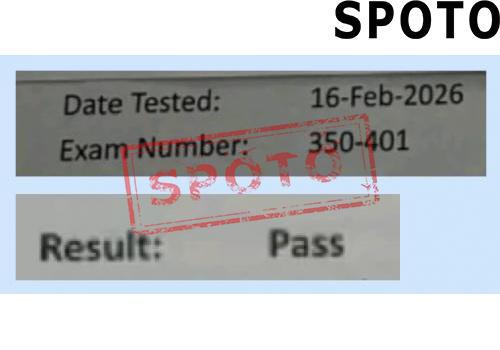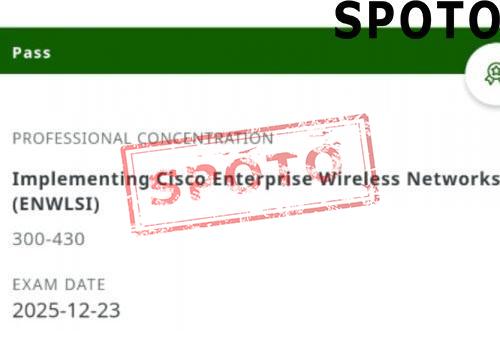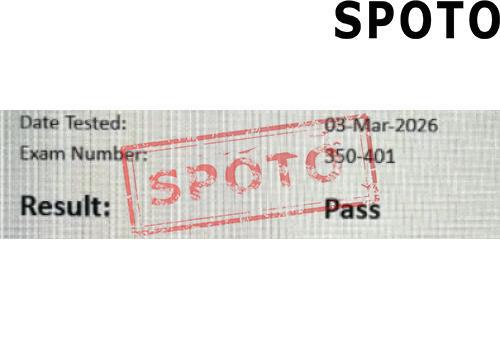
Cisco's CCNP (Cisco Certified Network Professional) certification is a significant step for IT professionals looking to deepen their expertise in networking. However, choosing the right CCNP track can be challenging due to the variety of options available. Each track caters to a specific area of networking, so it's essential to align your choice with your career aspirations, interests, and market demands. Let's explore the key factors to consider when deciding which CCNP track is right for you.
1. Overview of CCNP Tracks
Cisco offers several CCNP tracks, each focusing on a specific domain:
- Enterprise: Concentrates on advanced routing, switching, and SD-WAN technologies.
- Security: Focuses on securing networks, firewalls, VPNs, and identity management.
- Data Center: Covers data center architecture, virtualization, and automation.
- Collaboration: Centers on voice, video, and unified communications technologies.
- Service Provider: Designed for professionals managing large-scale service provider networks.
- DevNet: Focuses on network programmability, automation, and software development.
2. Career Goals and Industry Trends
Your career aspirations should be the primary driver of your decision.
- Enterprise: Ideal for those aiming to become network architects or engineers responsible for large corporate infrastructures.
- Security: Perfect for professionals targeting cybersecurity roles, given the increasing focus on network security.
- Data Center: Best suited for those interested in cloud computing, virtualization, and hybrid data center environments.
- Collaboration: A strong choice for professionals managing communication systems in industries like healthcare or finance.
- Service Provider: Fits individuals working with ISPs or telecommunications companies.
- DevNet: A great fit if you're passionate about automation, scripting, and integrating software with networking.
Industry trends also play a critical role. For example, the growing demand for cybersecurity professionals makes the Security track particularly attractive. Similarly, the rise of automation is boosting the popularity of the DevNet track.
3. Skills and Knowledge Prerequisites
Some tracks demand specific foundational knowledge:
- Enterprise: Strong understanding of routing and switching protocols is crucial.
- Security: Familiarity with basic security principles and tools like firewalls and VPNs is recommended.
- Data Center: Knowledge of virtualization and storage technologies can be advantageous.
- Collaboration: A basic understanding of voice and video technologies is helpful.
- Service Provider: A solid grasp of MPLS, BGP, and carrier-grade technologies is essential.
- DevNet: Programming skills, particularly in Python, are highly beneficial.
Evaluate your existing expertise and consider tracks that build on your current skill set while offering room for growth.
4. Job Market Demand
Research the demand for each track in your region or desired industry.
- Enterprise roles, like network engineers, remain in high demand globally.
- Security professionals are highly sought after due to the increasing prevalence of cyberattacks.
- Data Center experts are needed in cloud-centric organizations.
- Collaboration specialists are crucial in industries that rely heavily on remote communication.
- Service Provider roles cater to niche markets like ISPs and telecom companies.
- DevNet is growing rapidly, with organizations prioritizing automation and programmability.
5. Certification Exam Structure
Each CCNP track requires two exams:
- A core exam covering fundamental concepts of the specialization.
- A concentration exam focusing on advanced or specific technologies within the track.
For example:
- CCNP Enterprise: Core (ENCOR 350-401) + Concentration (e.g., ENARSI 300-410).
- CCNP Security: Core (SCOR 350-701) + Concentration (e.g., SVPN 300-730).
The flexibility of concentration exams allows you to tailor your certification to your career goals.
6. Hands-On Experience Requirements
Practical experience is crucial for success in any CCNP track. Tracks like Security, Data Center, and DevNet demand hands-on practice with specific tools or platforms, such as:
- Cisco Packet Tracer or GNS3 for Enterprise.
- Cisco Firepower and ISE for Security.
- UCS Manager for Data Center.
- APIs and Python scripts for DevNet.
Evaluate whether you have access to these tools or can invest in lab environments to build practical expertise.
7. Personal Interest and Passion
Your enthusiasm for a particular domain can make a huge difference. A genuine interest in a track's subject matter not only makes studying more enjoyable but also ensures long-term engagement and career satisfaction.
8. Certification Longevity and Future Prospects
Some tracks offer better longevity and relevance based on industry evolution:
- Enterprise and Security are considered evergreen due to their foundational importance.
- DevNet and Data Center are emerging as highly relevant in automation and cloud-driven industries.
Choose a track that aligns with both current opportunities and future-proof skills.
Conclusion
Choosing the right CCNP track is a significant decision that depends on your career goals, industry trends, existing skills, and personal interests. Whether you're aiming to secure networks, build scalable infrastructures, or embrace automation, there's a CCNP track tailored for you. Take the time to evaluate your options, understand the market demands, and select a path that aligns with your aspirations. With dedication and the right preparation, a CCNP certification can be a stepping stone to a rewarding career in networking.










